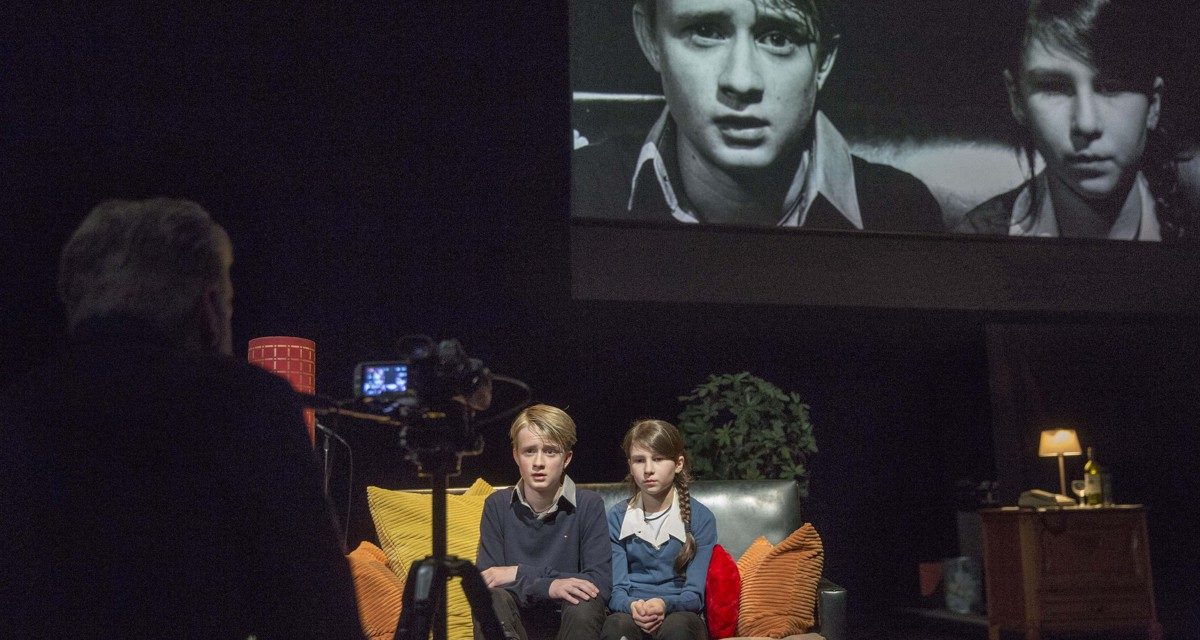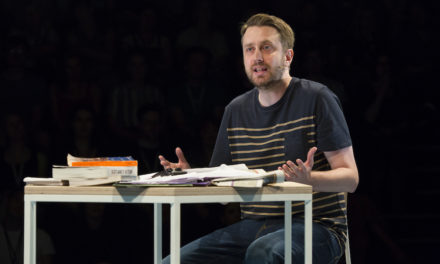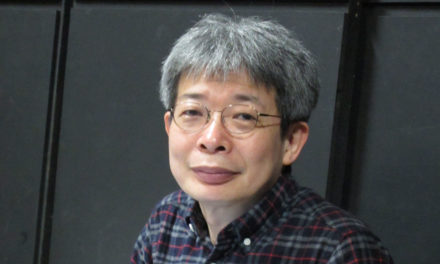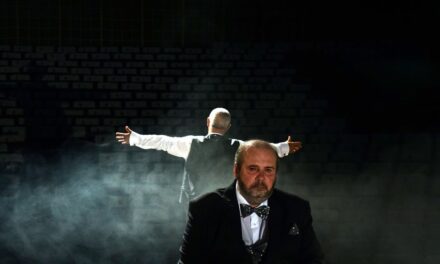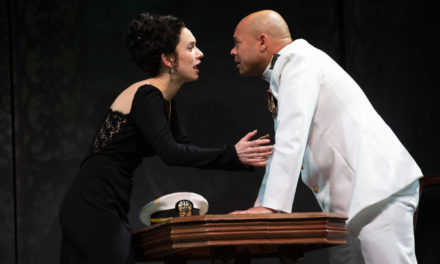It was a pleasure to sit down and talk to Stefan Bläske, the resident dramaturg of the International Insititute of Political Murder (IIPM), founded by renowned Swiss director Milo Rau, who probably is the current hot topic among the theatre world in Europe. Rau’s productions are often linked up with controversy, tackling real political topics around the world that blurs the line between theatre and real life.
The occasion for Bläske to be in Hong Kong was because of the dramaturgy workshop held by West Kowloon Cultural District (WKCD) titled Theatre and the Socio-political, an event that invited participants to view, study, and discuss four recorded productions of Rau with Bläske being responsible for their dramaturgy, plus a public seminar on the last day as an overview of Bläske’s work with Rau and IIPM. However, more importantly, Rau’s provocative but also simultaneously acclaimed production of Five Easy Pieces is going to be toured in Hong Kong by the turn of the month (it is now running at the Shouson Theatre of Hong Kong Arts Centre through Saturday, 3rd November) as part of the Hong Kong International Black Box Festival, co-curated by Hong Kong Repertory Theatre and WKCD.
In the summer of last year, I was fortunate to watch the recorded version of the Five Easy Pieces due to the two-day seminar of Theatertreffen in Hong Kong, which participants needed to watch all 10 selections of that year’s Berliner Theatertreffen. This is not a boost but an honest reaction, that I think Rau’s examination on crimes to children and its suggestions on children psychology and thus its relationship with theatre itself, is among the best of all 10 selections.
Unlike the usual productions of IIPM, Five Easy Pieces was commissioned by CAMPO, a Ghent (Belgium) based art center, for developing projects with children under directors or artists who have not collaborated with children before. With such kind of complex background of a project, I wonder if the Bläske’s role as a dramaturg had changed during the process, whether CAMPO has notes to the dramaturg, who usually is the one who gives notes to the production.
“We always depend on other people. The director, of course, is the [leader], and the dramaturg is the right-hand who is the most artistically influential I would say, because [the dramaturg and the director] made all the artistic decisions together. But of course, we are depending on [other parties,] in this case, for example, CAMPO for the format, because this is a very special case. CAMPO asked us to work with the children, so we asked CAMPO to cast the children, and to invite children. [to the casting]. This is the first [example] of other roles [in the production other than the director and dramaturg] to consult. They are the ones who invited the children, and then [Rau and I] met everybody, and then we decided finally for the seven children we were going to use.”
So did CAMPO know about Rau’s agenda? After all, to tackle the case of Marc Dutroux with children actors is a controversial attempt. How supportive was CAMPO towards this decision? Wanting a director who has not worked with children to work with them is one thing, but there can be still boundaries of what kind of show CAMPO wants to present. Did CAMPO also have its own agenda?
“No,” Bläske declared, “but when we came up with the idea of making a play about Marc Dutroux, of course in the first second, they said, ‘Let’s think about it for some [time],’ but then they were immediately very supportive. They didn’t influence us. They were very supportive in the sense of talking to the parents about whether it is possible to make a play with their children about Marc Dutroux. This is what I mean that, in this production, there were so many partners being supportive. CAMPO taking care of the children, making them feel comfortable.”
I remember that the play is full of lucid affections. Every actor, children included, in the piece is respectful to the ritual of reenacting the five pieces of scenery that reflect the seriousness and horror of the actual crime.
It is, thus, quite astounding to know that Rau, according to his interviews on The Guardian and WhatsOnStage, that the show is supposed to be “funny.”
“Not in the very beginning [though], we have no directions at all,” said Bläske. “Even after three months, we [had not] decided [on] the final topic. So we started with improvisations with the children and knew what were their ideas. We never start with a fixed plan but an open process.
“When [Rau] said it is a funny production, I [think what he meant is] that it starts in a funny way, […] but it gets very dark. […] It is just one part of the truth. When you hear Milo Rau doing a play about Marc Dutroux, you would only think, ‘It must be dark. It must be tragic.’ Maybe [Five Easy Pieces] is not funny, but a light play. People will laugh even at the end.
“This is also exactly the [function] of dramaturgy, [to build] a play. Okay, we have this very dark text at the moment, and the audience will cry and have strong emotional reactions. Let’s see how we can find a way to hold them for one-and-a-half hours for the evening. We start with kind of a light prologue, [thus] we have to first get to know the children. This was our main decision to say that they do not only play. No. They are themselves. They are who they are, and then they play the roles. So first we have to know them as clever as they are, as funny as they are, and then later we can dive into the [reannactment of the] crimes that had happened. These two levels are important for us. The funny moments later when the children reflect on what they have done, to show that they are clever, that [the children] are not suffering themselves. They play the persons who were suffering. It is important to make [the switching between tragic and funny elements] clear.”
However, it seems that the population was still not that convinced with the “switching.” Five Easy Pieces is deemed to be controversial as it uses children to explore murder and crime. It is recorded that nearly every post-show discussion of the play, there must be at least one audience member challenged or even condemned the production of using children. I asked Bläske if the ethical discussion has ever put on the table during the creative process.
“We did not think so much about the audience’s reaction, but more about the well-being of the children. That’s why we included a child psychologist to really check [the condition of the children actors]. Imagine if one of the children was raped as a child or has real psychological problems, then we have to take care of them.”
The show which will tour to Hong Kong features a new cast of children actors, since the original cast, which had already played the production over 100 times within two-and-a-half years, is now too old for the show.
“All the children in this show know the show. They saw the show before they decided to play [in the production]. So there is no [more] doubt about them [being exploited].”
Five Easy Pieces at Shouson Theatre, Hong Kong Arts Centre
Presented by the Hong Kong International Black Box Festival
Through November 3rd, 2018
This post was written by the author in their personal capacity.The opinions expressed in this article are the author’s own and do not reflect the view of The Theatre Times, their staff or collaborators.
This post was written by Clement Lee.
The views expressed here belong to the author and do not necessarily reflect our views and opinions.

